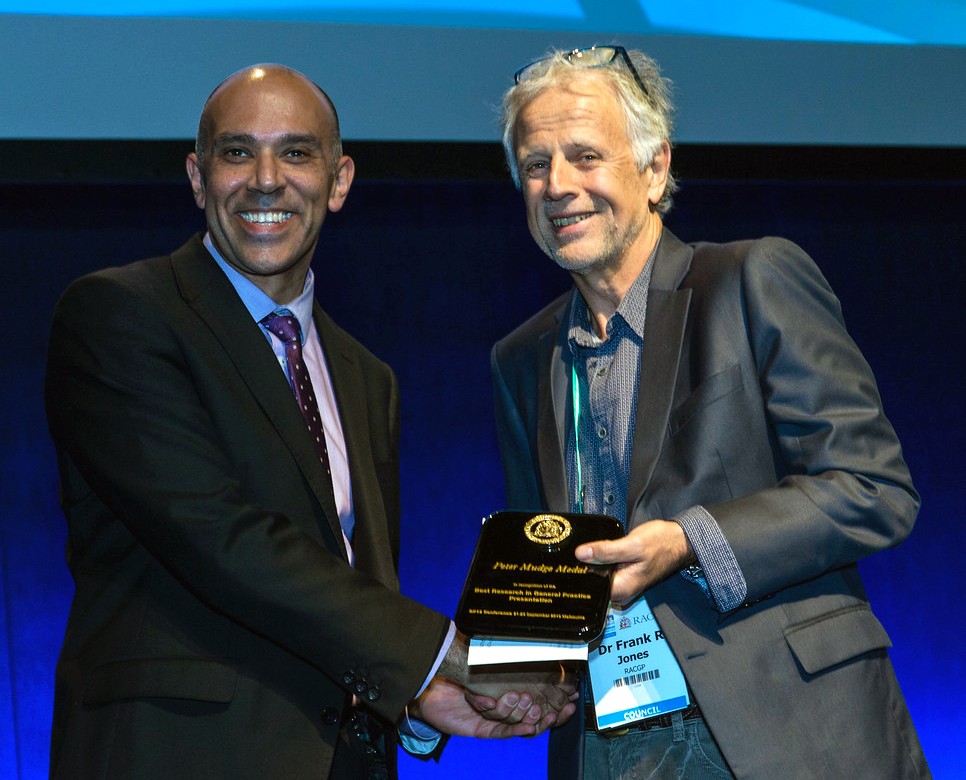
Research into the management of cancer patients by general practitioners (GPs) has seen Professor Moyez Jiwa, Associate Dean of The University of Notre Dame Australia’s Melbourne Clinical School, receive one of the country’s highest medical accolades.
Professor Jiwa was awarded the Royal Australian College of General Practitioners (RACGP) Peter Mudge Medal for 2015 at the RACGP GP15 Conference held in Melbourne on Monday, 21 September. This medal is one of only three awarded which recognise outstanding research presentations at the annual Conference.
Named in honour of Professor Peter Mudge for his commitment to general practice and research, the medal is awarded to a Conference presenter whose original research has the most potential to significantly influence daily general practice.
“I am humbled by this honour from my colleagues at the RACGP; it is a mark of great integrity that the profession celebrates work that concludes that we could do better,” Professor Jiwa said.
Led by Professor Jiwa, the research asked 102 GPs across Australia to review 24 cancer patient simulations and indicate whether they would refer the patient and/or prescribe medication, and/or undertake further investigation.
According to available guidelines, all cases, which were delivered via a video monologue, warranted a referral to a specialist or further investigation.
The research found that, in more than 12 per cent of cases, or one-in-eight patients, the patient was not investigated or referred to a specialist despite having symptoms that reflected the early onset of cancer development.
This means that, in reality, some patients may receive a delayed cancer diagnosis, even when they present with typical cancer symptoms to a GP who can access relevant tests.
“Along with my colleagues from Flinders University, the Victorian Metropolitan Alliance, University of Newcastle, University of Western Sydney and Curtin University, I hope this research can help to improve the care that GPs already provide to their patients,” Professor Jiwa said.
“Although this may be partly improved through better access to diagnostic tests, there are likely to be additional elements, such as time spent with each patient, that could influence ways these cancer symptoms are managed.”
To read a copy of the report, please visit www.leanmedicine.co.